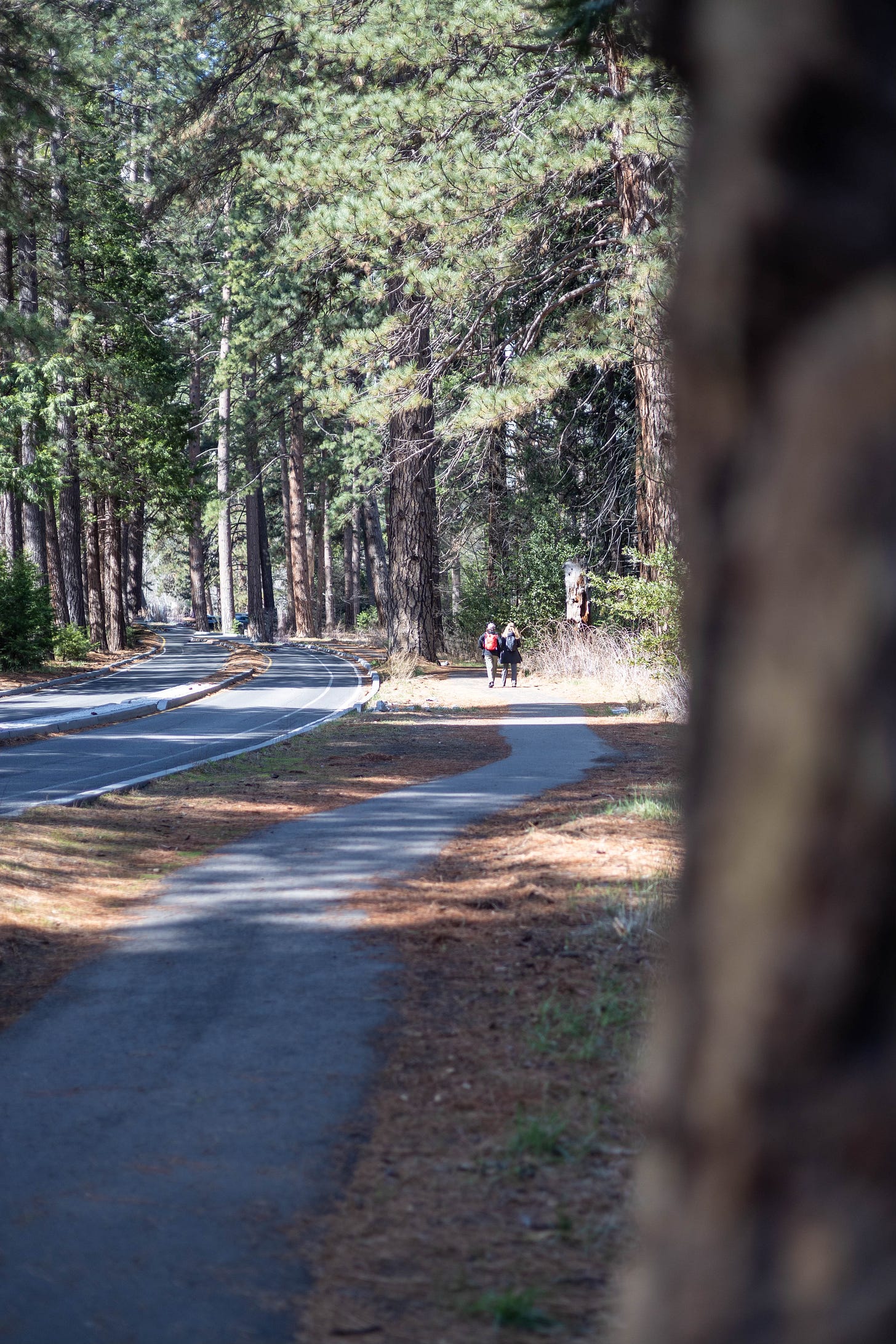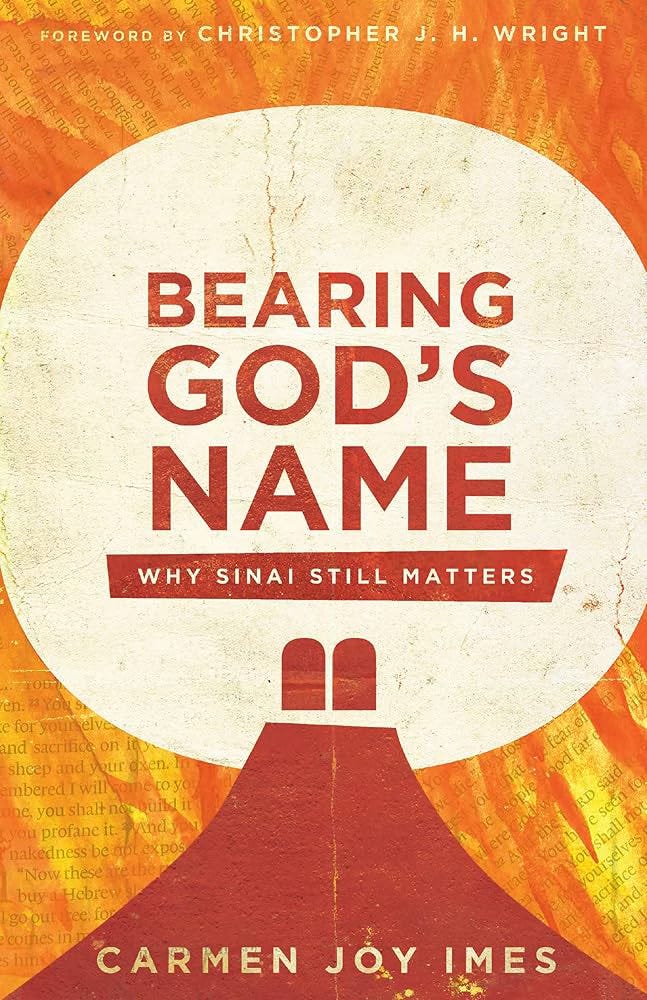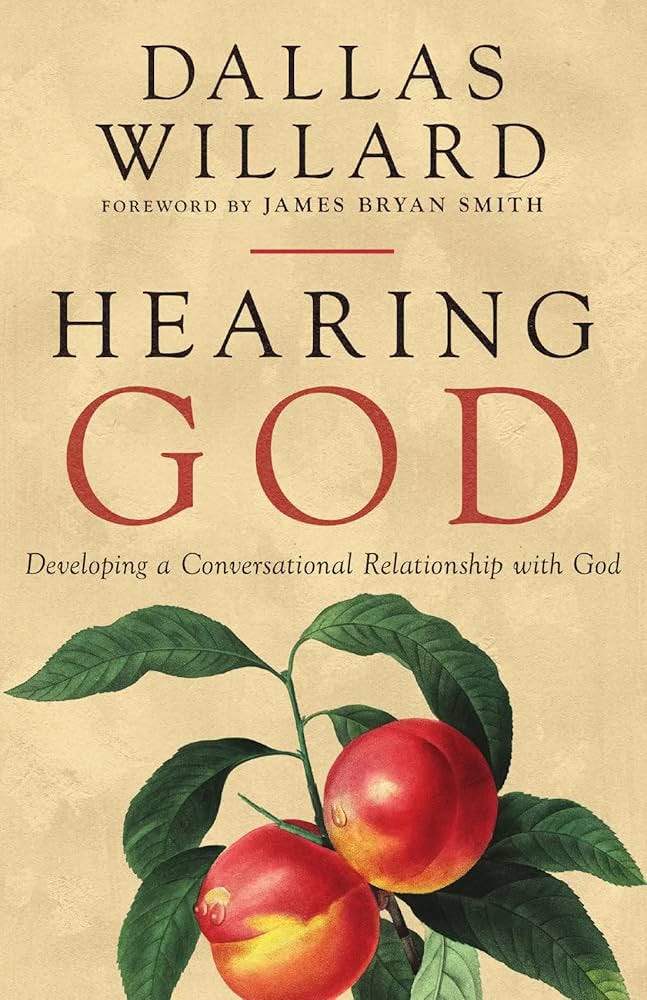Photo by Zack Gross (2025)
INTRODUCTION
Let’s read together Psalm 23 once again, and then we’ll jump into our line for this devotional.
Yahweh is my shepherd; I have all that I need. He lets me rest in green meadows; He leads me beside peaceful streams. He renews my strength.He guides me along right paths, bringing honor to his name. Even when I walk through the darkest valley, I will not be afraid, for you are close beside me. Your rod and your staff protect and comfort me. You prepare a feast for me in the presence of my enemies. You honor me by anointing my head with oil. My cup overflows with blessings. Surely your goodness and unfailing love will pursue me all the days of my life,and I will live in the house of Yahweh forever.
As we once again reflect on the poetry here and allow the imagery to take root in our mind, imagination, and memory, consider what it means for Yahweh to lead you.
Now, we’re looking at the next line:
He guides me along right paths, bringing honor to his name.
This Shepherd of ours, the covenant God of Israel, YAHWEH, guides us in the right way. He gently and confidently leads us. He has a plan and purpose in what He does.
HE GUIDES ME
As we once again consider this governing metaphor in this Psalm, we think about the sheep and the shepherd. As we have already talked about, sheep are incredibly helpless. They are not independent creatures.
This idea of God’s guidance is both countercultural and rather elusive
First, it goes against the grain of Western culture and the human heart. We want to be our own guide. “Follow your heart” “Do what you think is right” “You do you” “Trust your gut”. These are all pervasive ideas around us.
The idea that someone else would guide us and be our leader flies in the face of everyone’s best advice.
Even once you grant that God is the one who guides us, God’s guidance is also a rather confusing and vague idea for many Christians.
Last year, I read two books that transformed my understanding of what it looks like to seek God’s guidance.
In his book, Weeds Among the Wheat, Thomas Green addresses this issue head on. He warns that discerning God’s will is not like following a map with clear directions which is what most of want. Instead he uses the analogy of the sail boat where we must learn to catch the wind of the Spirit. We come to be responsive and sensitive to His movements instead of rigid and infexlible. Ultimately, this moves the conversation from information to formation. We prioritize learning Yahweh’s priorities, character, and ideals.
For example, when someone asks what God’s will is for their life, I am often reminded of 1 Thessalonians 4:3, which says, “God’s will is for you to be holy”
Other translations say, “God’s will is your sanctification” to become more like Christ.
Dallas Willard, in his book Hearing God, says that the main idea is not about techniques or signals from heaven, as many come to think but rather about being in a relationship of abiding with our shepherd.
There are two major errors that people tend to fall into with God’s guidance:
On the one hand, we can fall into passivity, waiting for some mystical lightning bolt before we act. “I do not know where God is leading me so I will just keep waiting”
On the other hand, we can rush ahead in our own desires and we simply frame or convince ourselves of our own preferences with spiritual language. “I have a lot of peace about this decision.”
I had the chance to talk to some students in El Salvador about this a couple of months ago. They were desperately looking for direction from God for their future.
We happened to be studying Proverbs 16 which as a whole has a lot to say about that issue. We specifically discussed Proverbs 16:9 which says, “A person plans his course, but YAHWEH directs his steps.”
We talked about the idea that God has given us passions, gifts, and ideas and to sit around and be debilitated by fear of it not being “God’s will” is not what He has called us. Rather, I encouraged them to humbly and prayerfully pursue opportunities as they come and to be wide-eyed and open to the people and things around them, and as they knock on doors to see which ones the Lord opens and which ones remain shut. When doors are shut to not dig in our heels and insist that this is what we have to do but also not interpret any difficulty as not being God’s will, since he certainly leads us into difficult things.
I think all of these ideas are covered under this important phrase,
He guides me
ALONG RIGHT PATHS
Philip Keller, who spent years as a shepherd and then wrote a book on Psalm 23, points out that when sheep are left alone, they destroy themselves and their environment. They will overgraze, wear ruts into the ground, and infest their pastures with disease.
A good shepherd, though, will constantly move them to fresh fields, and this is the idea underneath Yahweh as our shepherd guiding us.
The shepherd must constantly rotate pastures so that the sheep and their environment are not overtaxed.
The same is so very true for us. We find things to restore our souls and give us meaning and purpose. They might be positive habits like community, scripture, worship, generosity, feasting, etc. They might be more neutral, like going for a drive, reading a book, or biking. They might be negative like alcohol, pornography, or bingeing. These things become our pastures where we go to find life and restoration for the difficult things in our lives. The things we look to after a hard day at work, a rough phone call, or a day of caretaking for a difficult family member. Regardless, the point is that when we find something that works for us, we like sheep stick with it. And part of what Psalm 23 is encouraging us through this metaphor is to diversify our diet, to seek life in different places, and to not do any of that independently. The Lord graciously uses different means of grace to meet us, bless us, and love us. To assume that it will always come through Bible reading just because that is how he has met us in the past is to limit God.
According to Jesus in John 3:8, “ The wind blows wherever it will, and you hear the sound it makes, but do not know where it comes from and where it is going. So it is with everyone who is born of the Spirit”.
God moves in different ways at different times and for different people. Consider how he might be leading you to a new well for refreshment, and do not insist on going back to the ways he brought life in the past.
BRINGING HONOR TO HIS NAME
In the world of shepherding, the shepherd’s reputation is intrinsically tied to the condition and care of his sheep. Healthy and thriving sheep bring honor to the shepherd whose care they reflect. On the other hand, sick and scattered sheep bring dishonor and shame to the shepherd. The sheep's condition is a direct reflection of their shepherd.
In a similar way, God has in His goodness decided to attach His plans and reputation to people. Carmen Imes, in her incredible book Bearing God’s Name, argues that when Israel was commanded not to “take the LORD’s name in vain” (Exodus 20:7), it was not just about misusing God’s name in speech. Rather, she emphatically demonstrates that it was about “bearing” his name or in other words, carrying His reputation into the world. Israel was marked by being the people of YAHWEH and repeatedly, through the prophets, the condemnation is that they have dishonored YAHWEH and His reputation by not living according to His character, purposes, and direction.
The New Testament is equally emphatic that our actions and existence reflect the God we have identified with.
Jesus:
John 13:34–35 (NET)
“I give you a new commandment—to love one another. Just as I have loved you, you also are to love one another. Everyone will know by this that you are my disciples—if you have love for one another.”
Matthew 5:16 (NET)“In the same way, let your light shine before people, so that they can see your good deeds and give honor to your Father in heaven.”
Paul:
Romans 2:23–24 (NET)
“You who boast in the law dishonor God by transgressing the law! For just as it is written, ‘the name of God is being blasphemed among the Gentiles because of you.’”
Peter:
1 Peter 2:12 (NET)
“and maintain good conduct among the non-Christians, so that though they now malign you as wrongdoers, they may see your good deeds and glorify God when he appears.”
Ultimately, as Christians we are representatives of Christ and so our conduct in every single sphere we find ourselves in reflects upon Him.
It is quite easy for Christians to fixate on not cussing, talking about going to church, or explicitly sharing the gospel but our ability to bring honor to his name is by no means limited to those areas.
The way we choose to love or not love the immigrant, the poor, our cashier, our literal neighbor. The choices we make with our finances. The ways we open our home to others. The way we talk about people who are easy to poke fun at. The way we prioritize and use our time. The commitments we make.
These are all ways in which we have the potential to bring honor to the name, YAHWEH, the God we follow, love, and identify under.
READ & REFLECT
Once more, picture this image the Psalmist is giving us
He guides me along right paths, bringing honor to his name.
QUESTIONS:
Take some time to reflect on these questions and process with the Lord or a trusted friend what comes up as you consider these things.
What does it mean for YAHWEH to lead me into right relatedness in Jesus?
Recommended Resources:
Bearing God’s Name by Carmen Imes
“Have you ever wondered what the Old Testament―especially the Old Testament law―has to do with your Christian life? You are not alone. Some Christian leaders believe we should cast off the Old Testament now that we have the New. Carmen Joy Imes disagrees.
In this warm, accessible volume, Imes takes readers back to Sinai, the ancient mountain where Israel met their God, and explains the meaning of events there. She argues that we've misunderstood the command about "taking the Lord's name in vain." Instead, Imes says that this command is about "bearing God's name," a theme that continues throughout the rest of Scripture. The story of Israel turns out to be our story too, and you'll discover why Sinai still matters as you follow Jesus today.”
“"The best book on divine guidance I have ever read. I recommend it highly.” – Richard Foster, author of Celebration of Discipline
“This is simply the best book I’ve ever found on hearing God’s voice. It does it all—with nuance, grace, intelligence and spirit.” – John Mark Comer, author of The Ruthless Elimination of Hurry
How do we hear God's voice?
How can we be sure that what we think we hear is not our own subconscious? What role does the Bible play? What if what God says to us is not clear?
Dallas Willard's beloved classic Hearing God is designed to help you deepen your relationship with God by understanding how to communicate with Him. If you've ever found it challenging to discern whether God is speaking to you, this book will help you learn how to hear him as part of a deep and personal relationship with him.”





Thank you! This was so encouraging and helpful.
Thanks for sharing Zach. This verse came to mind to me:
“And do not be conformed to this world [any longer with its superficial values and customs], but be transformed and progressively changed [as you mature spiritually] by the renewing of your mind [focusing on godly values and ethical attitudes], so that you may prove [for yourselves] what the will of God is, that which is good and acceptable and perfect [in His plan and purpose for you].”
Romans 12:2
https://bible.com/bible/1588/rom.12.2.AMP